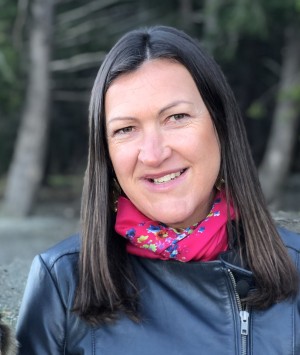Cromwell aims for affordable housing plan

Decision makers in Central Otago need to step up to help workers unable to get on the property ladder because of sky-high property prices.
That’s the view of Cromwell businessman Glen Christiansen, one of the four inaugural trustees of the Central Otago Affordable Housing Trust.
On the sideline of his child’s soccer match last weekend, Mr Christiansen had what he reckons is an increasingly predictable conversation with another parent.
“Her son's intention is to do his apprenticeship here in Cromwell, and then he's going to go to Australia once he's done his time to earn the money to come back to be able to afford a house here.
“It's our role to remove that step if we want to futureproof our workforce in Central Otago.”
His chief motivation for joining the affordable housing conversation is he’s a parent, who wants to see a future for his kids in a town he loves and calls home.
But he’s also an employer – he’s the general manager of The Gate – and housing woes are a constant among his 80-odd employees.
The trust has a plan – it wants to see a Secure Homes scheme launched in the district, starting in Cromwell and Alexandra.

There's land belonging to the council still to be developed in Cromwell's Gair Estate, and the Central Otago Affordable Housing Trust has an eye on it.
Put simply, the scheme allows a new homeowner to buy a house, while the trust retains ownership of the land the house sits on.
It provides the homeowner with decent, affordable housing as well as longer term security and stability.
What the trust is missing, is the land to kick-start the scheme, but there’s a potential simple fix for that.
Land ready to develop is something the Central Otago District Council does have, specifically in Gair Avenue, in Cromwell, and in Dunstan Road, in Alexandra.
Gift the land to the trust, and it can get cracking, Mr Christiansen says.
“I’m asking councillors to be courageous in their decision making.
“We want to futureproof the district and that's their job.”
Central Otago needn’t look far for evidence a local council can be proactive in helping housing be more affordable for some.
Upstream in Queenstown and Wānaka the Queenstown Lakes Community Housing Trust has been successfully operating for 15 years.

Julie Scott, of the Queenstown Lakes Community Housing Trust, says affordable housing allows a greater selection of people to call a community home.
Executive officer Julie Scott says in that time it’s helped 243 households in the district find an affordable home to call their own.
And the Queenstown Lakes District Council has played a fundamental role in the trust’s mahi.
The trust’s got a number of set-ups – at one end it offers social housing options for people doing it really tough; at the other, a secure home scheme comparable to that proposed by its Central Otago counterparts that helps locals own their own home.
“Our council has facilitated a huge amount of funding to our trust to enable us to do this.
“We've had nearly $25 million in land and cash come across to us over the last 15 years from land developers through the inclusionary zoning process and that's enabled us to build up our balance sheet to where it is today.”
For now, this sort of regulatory support for the housing trust isn’t on the table in Central Otago.
But the QLDC has gifted to the trust two parcels of land in Arrowtown – in 2015 and 2016, 10 homes were built on land in Suffolk Street; while another land transfer last month will allow for almost 70 additional homes to be built by the trust.
And it’s this sort of support that Mr Christiansen is banking on.
CODC chief advisor Saskia Righarts says there’s a real mix of what councils can do in the affordable housing space.
But, other than a smattering of housing units for the elderly (there’s 98 of them across the district), and tinkering with district plan provisions to enable smaller (and hopefully cheaper) lot sizes in developments, the council hasn’t much dabbled in it.
There is rationale for why a council would, though, she says.
“Why a council might get involved in it is to support and grow and foster the development of their community and to support people into the community that otherwise might not, because they just can't get housing.
“Traditionally, I think housing has been seen more as a central government issue, but we know that there's local solutions that could potentially help."
But local solutions will come at a local cost, she says.
In an online discussion page the CODC provides its own ballpark price tag for the Central Otago housing trust’s proposal - $8 million.
That's funds that will no longer be available for other projects in each of the Vincent and Cromwell wards, if the land's gifted to the trust.
“For little old CODC, that’s nothing insignificant, right?,” Ms Righarts says.

What would it be like if Gair Estate in Cromwell had some sites set aside for affordable housing, available for people living and working in the town otherwise unable to afford secure, long-term accommodation?
But, Ms Scott, of the Queenstown Lakes Community Housing Trust, says the equation needs to be rephrased in the minds of residents and ratepayers.
“I think one of the key things to remember and something that we always used to talk about with the council when we were putting a proposal to them for them to transfer land over to our trust was this isn't a loss to council - this is a transfer of asset from one community-owned balance sheet to another.”
In Queenstown and Wānaka increasing numbers of locals are seeing first-hand the benefit of what the housing trust, with a leg-up from the council, has been able to achieve.
“Queenstown and Wānaka are small towns – Cromwell and Alex are even smaller towns…What we’ve found is from the 243 households that we’ve assisted so far everyone kind of knows someone who’s in a housing trust house, or has been helped at some stage by the trust," Ms Scott says.
“We think when people see it for themselves, when they know first-hand someone who has managed to stay in the district because of the housing trust, then it becomes real and they become supportive.”
There has been some NIMBY pushback from locals concerned affordable housing is synonymous with “ghetto” dwellings.
“We certainly faced that sort of sentiment when we first started and we fought hard to help people understand that's not what we're building,” Ms Scott says.
But, again, the proof has been in the pudding.
"After we built our very first development in Nerin Square, in Lake Hayes Estate, that changed everything because people saw we were building this really smart development that is now the hub of Lake Hayes Estate," Ms Scott says.
Back in Cromwell, Mr Christiansen says action by the council on affordable housing is long-overdue.
He wants the council to start making some bold decisions, to help ensure the district's housing stock can meet the needs of the community.
The people that will benefit from the housing trust's Secure Homes model are a vital part of small towns, he says.
"They are committed to the region, they are committed to the community."
They work in local businesses, and their kids play soccer, he says.
"But without the 'bank of mum and dad' they can't stay here.
"They'll leave and go to Australia to earn money to come back and buy a house."
Ms Righart says before the CODC makes its next move, it wants a nudge from residents and ratepayers.
An online survey on the option to gift council-owned land to the housing trust is open for submissions until June 5.
“What we are doing at this stage is just getting a sense from our community – do they want us to explore this idea more, do they support it in theory," Ms Righart says.
“If in this initial survey our community says ‘hey, actually we kind of like this idea’, and then the council says ‘actually, we want to explore this idea more fully’, then what would happen, because of the level of expenditure, is we would actually formally consult on it, most likely during a LTP (Long Term Plan) process, where we do lots of different engagements.”


























